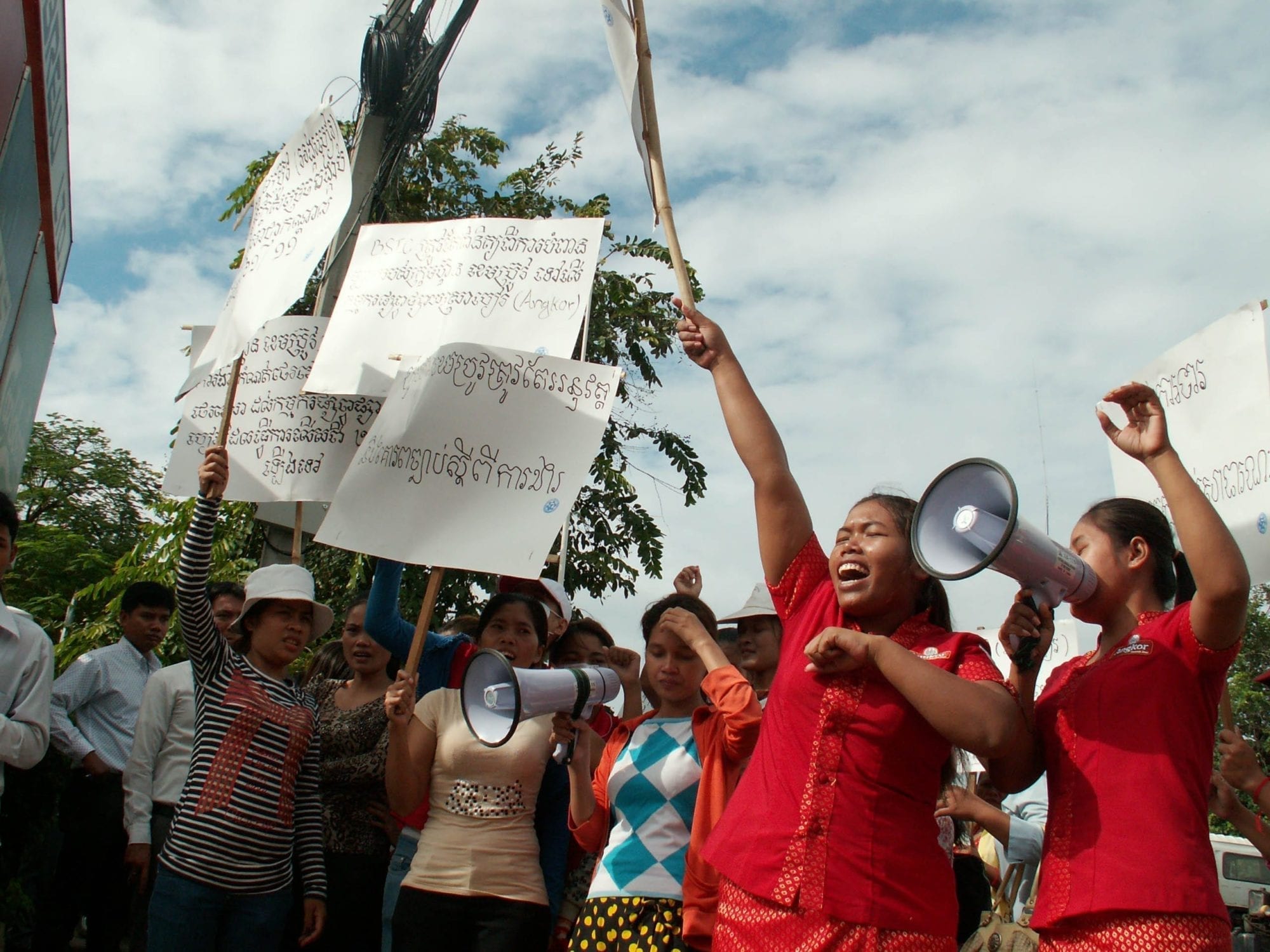Women, people of color, indigenous and other disenfranchised and marginalized groups have been hit especially hard by the increasing concentration of transnational corporate power and escalating global economic inequality—but a new report showcases how women and oppressed people are shifting the dynamic through their own power of resistance.
Key to the success of such movements, according to the report, “Challenging Corporate Power: Struggles for Women’s Rights, Economic and Gender Justice,” is “a deliberate effort to unite experiences and struggles across different movements.”
“Each struggle … uses cross movement collaboration in some way to defy corporate power,” according to the report.
“Challenging Corporate Power” stems from an early 2016 cross-movement dialogue convened by the Association of Women’s Rights in Development (AWID) and the Solidarity Center. Facilitated by Just Associates (JASS) in São Paulo, Brazil, the meeting brought together women trade unionists, women workers, feminists, indigenous and black women, lesbian, bisexual, trans, queer, Intersex (LBTQI) activists, av nd women human rights defenders to discuss, debate and share understanding of corporate power, and what it means to their struggles and their lives.
The report will be released September 10 at AWID’s 13th International Forum in Bahia, Brazil, where more than 1,800 participants are gathered this week to strategize around “Feminist Futures: Building Collective Power for Rights and Justice,” the report’s key finding. Cross-movement initiative sessions throughout the conference include the Solidarity Center-sponsored “Building Alliances to End Gender-Based Violence in the World of Work,” a three-hour discussion how gender-based violence at work links to larger struggles for economic and gender justice. The Solidarity Center also is holding a panel on “Women’s Economic Empowerment and Worker Rights,” moderated by Solidarity Center Executive Director Shawna Bader-Blau.
Women Workers Form Unions to Reverse Tide of Inequality
At the January meeting, participants discussed five successful movements to demand accountability—for labor rights violations, ecological damage, trade liberalization and privatization. Women beer promoters in Cambodia, for example, are increasingly forming unions with the Cambodian Food Service Workers Federation (CFSWF) to protest against poverty wages, sexual harassment and violence, long working hours and toxic working conditions in bars and restaurants.
They are some of the 70 million women organized in trade unions today, with many millions more in cooperatives and other worker rights associations, according to the report. Increasingly, there “is a call to scale up struggles of resistance, build bridges between different social movements, and foster and grow people’s power to build new forms of production, consumption and distribution of the world’s social and economic resources,” the report finds.
Through a lens of power analysis developed by JASS, the report examines how corporate power—defined as an excessive control and appropriation of natural resources, labor, information and finance by an alliance of powerful corporations and global elites in collusion with government—affects gender justice, women’s rights and lives through its influence on police that shape the global economy.
The power analysis lens illustrates how corporate power operates and its impacts on women and oppressed peoples. For instance, 63 percent of the top 175 global economic entities are transnational corporations, not countries, a concentration of power that affects gender justice, women’s rights and lives through its influence on policies that shape the global economy.
At the same time, some 70 percent of workers are in vulnerable employment. Women from racially and ethnically marginalized groups and migrant women worldwide, including those living in the global North, have less access to education and skills training, are responsible for an unequal share of unpaid work and domestic homes and are more likely to be in low paid and informal employment without social security benefits.
The recommendations and reflections emerging in the last moments of the Cross Movement Dialogue speak to how women trade unionists, LBTQI activists, feminists, indigenous women and women human rights defenders can sustain their victories by consolidating the power within their movements, nurturing collective power with other social movements, and exerting power over corporations and governments acting in their interest.

